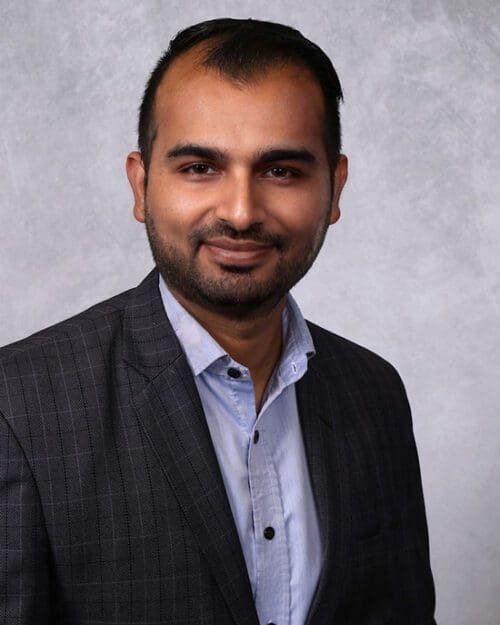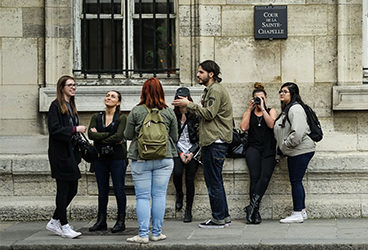Building a global mindset for students: meet Study Away director Ramesh Neupane

Ramesh Neupane, director of International Programs and Partnerships, is a strong proponent of students’ exposure to different world cultures during their college experience. In his role, he is helping grow Study Away programs that will allow students unique opportunities to travel abroad and domestically, which will put classroom lessons into action in different cultural settings.
Neupane is a native of Nepal and previously served as associate director at Southern Illinois University Carbondale’s (SIUC) Center for International Education.
Read more to learn about Neupane’s passion for studying abroad and student international engagement.

Interested in Study Away programs?
Study Away programs provide students various opportunities for academic and cultural engagement both abroad and in the U.S. Students can apply to join PNW-sponsored programs or coordinate a learning plan with an international university with the help of the International Programs and Partnerships office.
What are the benefits of studying abroad?
There are three main benefits to studying abroad. The first is it’s a living, learning, cultural, academic experience. You are getting that firsthand experience in a different country with a different culture, language and food.
The second is academic. When you go for a Study Away program, there will be some credit hours completed.
Third, it’s the 21st century. Almost every employer is looking for a global mindset. We have that goal for PNW students to grow a global mindset through a Study Away experience.
I always say once a student steps onto the plane, they are learning different things. There might be people sitting next to them who are from different countries, states, or towns. You are learning how to be comfortable traveling with someone from a different country or state for up to 14 hours. You are learning something and adjusting to your environment. It is a learning curve for students.
Take advantage of it while you are a student. Once you finish college, nobody will be there to remind you to go abroad and earn credit hours. You will have a career and not as much time, so it is a great experience to earn while in school.
Does your office help coordinate financial assistance?
I see a real high interest from students in studying abroad, but one of the biggest factors for them is financial considerations. Please come and talk with our office so we can help you with your options. I try to provide the resources so we can minimize the cost of programs.
There are various scholarships students can apply for through the U.S. State Department, like Gilman, Fulbright, Boren and more which have different criteria. They are typically very competitive, but we always encourage students to apply.
Different universities in various countries will also offer scholarships if you do an exchange program.
Can students from different majors participate in certain Study Away programs?
It depends on the coordinating faculty member and their department. There may be a few programs that are specific to a major, but most will be interdisciplinary.
As an example, let’s say you travel to London. If you are studying English, you are learning a different language system because the whole tone is different. If you are studying Psychology, you step out of your box and experience a different culture. If you are studying Political Science, you are learning about the history and politics of a country.
Students will have an advising appointment with us and can then have follow-up conversations with their academic advisors to view their plans of study and the faculty members for approval.
What should faculty members know when making proposals?
If a faculty member is interested in leading a Study Away program, come and talk with us to see our process.
First, get approval from your college and then department.
Second, submit the faculty proposal form to our office, then we will review and work with faculty members to create that program. We will be ready to discuss location and resources if you need help with that coordination.
Each college has their goals for their students, and we want to make sure we are aligning those goals with the proposals.
What should these programs fulfill?
It’s a living, learning, cultural and academic experience. There will certainly be an academic component, but there should be a component regarding culture too. It is obviously not just about sightseeing and visiting. If you are going to India, you are not just going to see the Taj Mahal. You may learn about the history of the Taj Mahal, the architecture and how it was built. We want that experience in there for students so there is a cultural part.
There are also learning curves that are valuable for students. If you go to a market, you learn how another monetary system works. In the U.S. we primarily use credit and debit cards, but a lot of other countries use cash or other monetary values. Or, in some countries it is normal to eat with your hands. Those are small but impactful things students will experience.